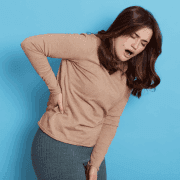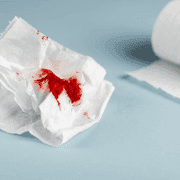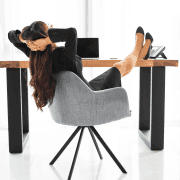Living Comfortably with Piles: Your Self-Care Toolkit
In This Article
Living Comfortably with Piles: Your Self-Care Toolkit
Jaseela
Updated on August 13, 2024
Medically verified by Dr. Pournami
Fact checked by Dr. Arya

Proctology
6 min read
Are you searching out ways to live readily while handling piles? Mykare Health explores this topic, presenting easy solutions and self-care pointers to help you sense higher every day.
From realistic advice to clean-to-observe techniques, discover a way to deal with piles and improve your first-class of lifestyles with our self-care toolkit.
Let's delve into the arena of living without problems with piles together!
What Are Piles?
Piles, also called hemorrhoids, refer to swollen veins located around the rectum or anus. These veins can emerge as inflamed and cause soreness, mainly throughout bowel actions. Common symptoms of piles consist of:
-
Pain or Discomfort: Piles can cause ache or soreness, mainly at some point of bowel actions or while sitting for prolonged periods.
-
Itching or Irritation: The affected place can also feel itchy or irritated because of irritation and swelling.
-
Bleeding: Piles can also cause bleeding, specially at some stage in bowel movements. Blood may be seen on restroom paper or in the toilet bowl.
-
Protrusion: In a few instances, piles can protrude from the anus, mainly to a lump or bulge that may be felt or seen externally.
Types of Piles
There are important styles of piles: internal and outside.
-
Internal Piles: These develop inside the rectum and are generally no longer seen or felt until they prolapse (protrude) through the anus for the duration of bowel actions. Internal piles are generally painless but may cause bleeding.
-
External Piles: These shape underneath the pores and skin across the anus. They can be felt as small lumps or bulges and may promote ache, itching, or irritation. External piles can on occasion increase blood clots (thrombosed hemorrhoids), leading to intense pain and swelling.
Causes of Piles
-
Straining During Bowel Movements: Excessive straining throughout bowel moves can increase pressure at the veins inside the rectum and anus, leading to the improvement of piles.
-
Chronic Constipation or Diarrhea: Conditions that cause common bowel moves or difficulty passing stool can make a contribution to the formation of piles.
-
Pregnancy: The multiplied strain on the pelvic region in the course of being pregnant can cause piles to expand.
-
Obesity: Being overweight or obese can boost the strain on the veins inside the decreased rectum and anus, increasing the threat of piles.
-
Sedentary Lifestyle: Lack of bodily hobby and prolonged sitting can contribute to the improvement of piles through slowing down bowel movements and increasing stress on the veins.
 5 min read
5 min readDon't Ignore Bummy Pain: Could It Be Piles?
 7 min read
7 min readBlood In The Stool: A Sign You Shouldn’t Ignore
 6 min read
6 min readSitting All Day Wreaking Havoc? It Might Be Piles!
Get a Callback Now
Importance Of Self-Care In Managing Piles
Self-care plays an important function in managing piles and assuaging signs and symptoms. By adopting sure practices and making life-style adjustments, people can lessen pain and sell recovery.
Here are some self-care tips for piles relief:
-
Hygiene and Gentle Cleansing Practices: Keep the anal region clean and dry. Use gentle, fragrance-loose wipes or gentle tissue to clean after bowel movements. Avoid the usage of harsh soaps or wipes that may worsen the skin.
-
Dietary Adjustments: Consume an excessive-fiber food regimen wealthy in culmination, vegetables, and whole grains to sell bowel regularity and prevent constipation. Drink plenty of water to stay hydrated and soften stool.
-
Lifestyle Changes: Avoid extended sitting or status, as it is able to increase stress at the veins inside the rectum and anus. Take breaks to move around and avoid straining at some point of bowel moves.
-
Incorporating Physical Activity: Engage in everyday physical hobbies, including strolling, swimming, or yoga, to enhance circulation and promote healthful bowel features.
-
Stress Management: Practice pressure-discount strategies, such as deep respiratory, meditation, or mindfulness, to manage pressure levels and promote universal proper-being.
Practical Solutions For Daily Comfort
-
Choosing Comfortable Clothing and Underwear: Wear loose-becoming clothing and breathable cotton underclothes to lessen irritation and allow air flow across the anal place.
-
Over-the-Counter Remedies: Explore over the counter remedies, including hemorrhoid lotions, ointments, or suppositories, to relieve ache, itching, and infection.
-
Managing Pain and Discomfort: Apply ice packs or witch hazel pads to the affected vicinity to lessen swelling and soreness. Avoid the usage of harsh soaps or perfumed merchandise which could irritate the pores and skin.
-
Creating a Supportive Environment: Surround yourself with supportive buddies and own family members who can provide encouragement and help in the course of your recuperation. Communicate openly with your healthcare provider about your signs and concerns.
By incorporating those self-care pointers and sensible solutions into your day by day habitual, you can efficiently manage piles and enhance your satisfactory lifestyles.
However, if your signs persist or get worse regardless of self-care measures, consult a healthcare professional for further evaluation and remedy alternatives.
- A Fiber-rich Diet: Have extra high-fiber, low-fat meals like beans, complete-grain bread, cereals, clean culmination, and greens to ease the pain of piles. Fiber increases stool weight and softens stools, making them less complicated to bypass and reducing the time they spend in the colon.
This facilitates saving you or alleviating haemorrhoid signs and symptoms. If you may not get enough fiber from food, seek advice from your medical doctor about supplements, but introduce fiber step by step to avoid gasoline and bloating.
- Increase Fluid Intake: Staying hydrated is crucial for retaining stools soft and clean to pass, which is vital for stopping and easing the soreness of piles. When you’re now not drinking enough water, your intestines absorb water from food waste, mainly to hard and dry stools which can be hard to bypass.
This can cause straining in the course of bowel movements, putting pressure on blood vessels across the anus and leading to inflammation and piles.
Drinking lots of water keeps the colon hydrated, stopping it from drawing an excessive amount of water from stools and keeping them soft. Increasing water intake is an easy and powerful way to ease piles discomfort and reduce the danger of constipation.
Experts propose consuming at least 8 glasses of water an afternoon to help soften stools and reduce straining.
- Exercise : Regular at-domestic physical games, mainly pelvic ground sporting events, correctly manage haemorrhoid symptoms. Strengthening those muscle mass aids in less complicated bowel actions, reducing pressure and ache.
This proactive method gives lengthy-term comfort, making each day's exercise greater comfortable for the ones experiencing piles.
Living with piles is feasible with the proper self-care toolkit. By following easy steps like preserving smoothness, consuming well, and staying energetic, you can control symptoms and reduce discomfort.
Remember to pay attention to your diet, make good choices on dealing with piles, and search for support when wanted. With staying energetic and careful, you can deal with piles and live greater readily with piles.
Piles can cause ache or soreness, mainly at some point of bowel actions or while sitting for prolonged periods.
Regular at-domestic physical games, mainly pelvic ground sporting events, correctly manage haemorrhoid symptoms. Strengthening those muscle mass aids in less complicated bowel actions, reducing pressure and ache.
Staying hydrated is crucial for retaining stools soft and clean to pass, which is vital for stopping and easing the soreness of piles.



